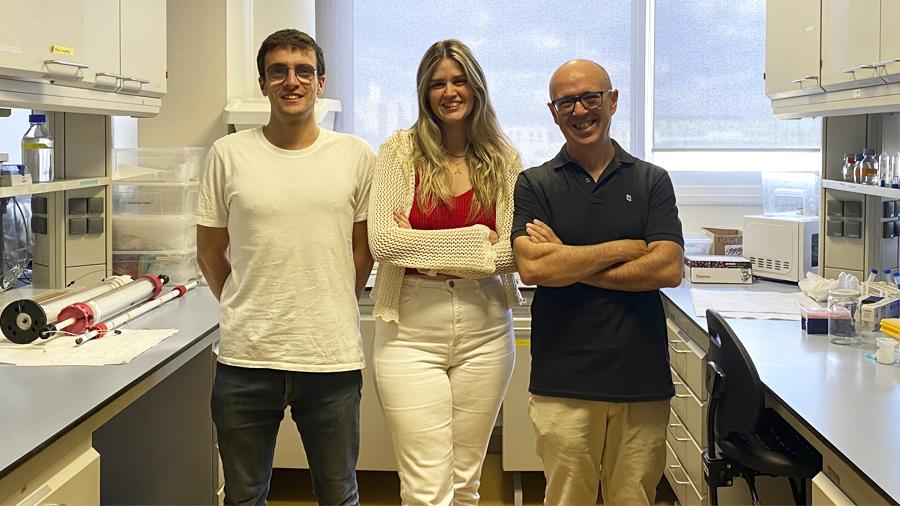Vaccines for neurodegenerative diseases: a review
Researchers from the Institute of Biotechnology and Biomedicine (IBB) and from the Parc Taulí Research and Innovation Institute (I3PT) have reviewed the current state of the application for an active immunotherapy being studied for the treatment and prevention of Alheimer's and Parkinson's diseases. The revision was published in Trends in Molecular Medicine.

Alzheimer's and Parkinson's diseases affect millions of people around the world and are characterised by the progressive degeneration and death of neurons, altering functions such as memory, movement, thinking and speech. The current treatments available can only alleviate symptoms and improve the quality of life of sufferers, but not halt the course of the disease. However, the approval of the first passive immunotherapies by the European Medicines Agency (EME) and the Food and Drug Administration (FDA) has opened the door to hope in the treatment of these neurodegenerative disorders.
In this context, the review led by Salvador Ventura, director of the I3PT, professor in the Department of Biochemistry and Molecular Biology at the UAB, and IBB researcher, explores the possibility of applying active immunotherapy, i.e. the development of vaccines for Parkinson's and Alzheimer's disease. This is a form of treatment that uses the body's own immune system to fight these diseases.
“Instead of temporarily receiving external antibodies as in other treatments, these vaccines teach the body to produce its own antibodies to attack proteins that accumulate abnormally in the brain and are related to neuronal degeneration,” Ventura explains. These proteins are different depending on the disease: in Alzheimer's it is the amyloid beta, and in Parkinson's it is alpha-synuclein. When they accumulate in the brain, they prevent neurons from functioning properly and eventually cause them to die, which leads to the appearance of the symptoms of the diseases.
One of the new aspects of these vaccines is that they are not limited to treating the symptoms or reversing severe cases of advanced neurodegeneration, but could rather offer a way to prevent these diseases in very early stages, something particularly relevant in those people who are at high risk of developing them, such as the elderly population. In this regard, researchers point out that some clinical studies have already shown that these vaccines can reduce the accumulation of toxic proteins and, in some cases, improve patients' cognitive and motor skills.
At the same time, they also indicate that the vaccines could be a more affordable and accessible solution for many patients. Unlike conventional passive immunotherapies, which often require regular administrations of external antibodies, vaccines could stimulate the body's own natural antibody production for longer periods, making the treatment more sustainable in the long term.
Although there are still major hurdles to overcome, such as the need to improve methods for early detection of the disease in its initial stages, researchers are optimistic. “The vaccines are already being tested in clinical trials and the first results are promising. In the coming years, these studies could represent a breakthrough in research into neurodegenerative diseases, and offer new hope for patients and their families,” Ventura predicts.
Original article: Gonzalez-Artero, A., Pujols, J., & Ventura, S. (2024). Harnessing the immune system: vaccines to fight neurodegenerative diseases. Trends in molecular medicine, S1471-4914(24)00219-3. Advance online publication. https://pubmed.ncbi.nlm.nih.gov/39256108/